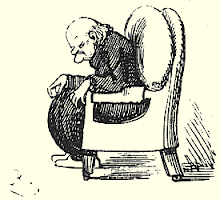
In this crime-scene photograph, (A. O'Connor - AnemoneProjectors) you can see Detective Sergeant Head's body lying in the street behind the dark-colored vehicle.
Roberts, Duddy, and Whitney were all arrested and found guilty of the murders, and were sentenced to life imprisonment by Mr. Justice Glyn Jones, who is often quoted as referring to this murders as "the most heinous crime to have been committed in this country for a generation or more." People called angrily for the return of the rope, which did not return. At the officers' funerals, thousands of officers and civilians from all over the United Kingdom attended, as did Prime Minister Harold Wilson.
Duddy died in prison of natural causes in 1981, which is just fine with me, because that's what a life sentence means.
Shockingly, Jack Whitney was released in 1991, after only serving 25 years in prison for the murders. He did, however, have his head beaten in with a hammer by his heroin-addicted flatmate during an argument, so that took care of him, and gives a hair of credence to my mother's philosophy "everything happens for a reason."
There was much talk in February of 2009 that Roberts would most likely be released from prison. He has been in prison for 43 years, and is now 73 years old and refers to himself as "an old-age pensioner." He may very well be an old age pensioner, however, he is still something most other old-age pensioners aren't, a convicted triple-killer. While the passing of time makes some things better, like cheddar and wine, it doesn't do much to improve the reputations and histories of those involved in appalling acts like the one in which Roberts participated, and began, on August 12, 1966.
Roberts himself says this: "I can understand why the families of the three policemen could never forgive me and wouldn't want me released. But I feel I've served my time."
My question is this: how can you feel you've "served your time" of a life sentence if you're still alive? Obviously, you haven't, Mr. Roberts. You have served time, and you've served a lot of time, but is it enough?
When I hear people talk about crimes that occured a long time ago, I call them "black-and-white crimes" because that's how most of them were recorded for posterity, they often voice the opinion that, once a certain amount of time has gone by, the punishment somehow no longer fits the crime. Usually this opinion is expressed by sympathizers of the convicted, though not always, and usually these sentiments are posed when the killer is wizened, elderly, gray and now appears avuncular, or even grandfatherly-- in stark contrast to, say, their mugshots in which they appear crazed, young, powerful, angry-- and very, very dangerous.
"Who could he harm now?" people ask of convicted murderers like Harry Roberts, who committed their crimes in long ago, sepia days of yore. The answer, though, isn't really relevant. The gravity and the atrocity of the butchering of three unarmed men in the middle of a sunny afternoon demonstrated that the socioipathic nature of these three men was sufficient to warrant them being removed from society forever-- and that is what should have been done.
I think that people who utilize the "enough is enough" argument when referring to elderly people who have done the evil art of murder in their youth have a lot of nerve advocating for the release of people I don't think they'd want buying the house next door to their own families. The people who wouldn't pass background checks to work in their shops. The people whom you can't ever really trust, ever again.
The Lucifers in our midst.














